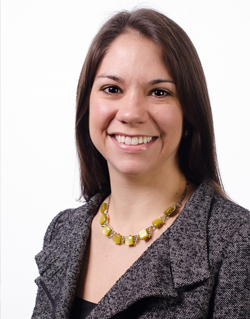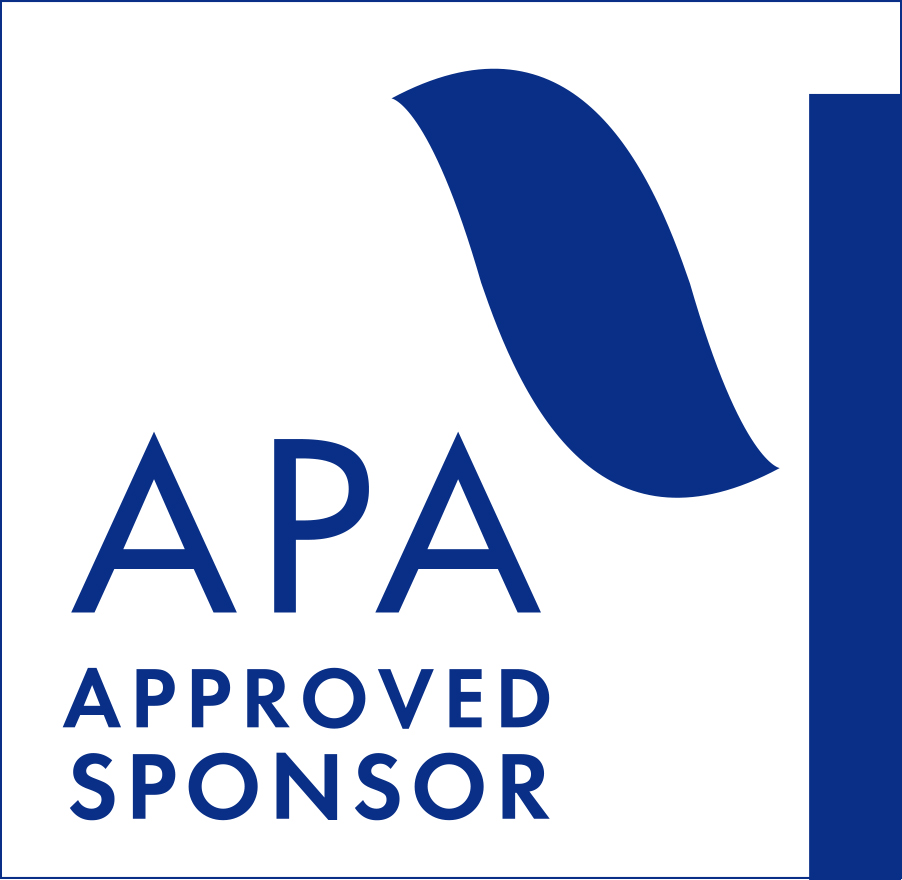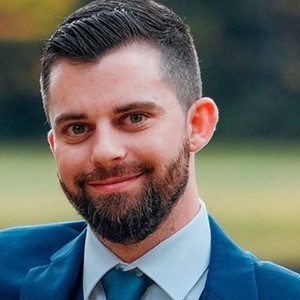2025 SPA Convention & Workshops
March 26 - 30, 2025 | Sheraton Denver Downtown Hotel | Denver, CO
Looking to be an exhibitor or sponsor at the 2025 SPA Convention?
Click here for more info!
March 26 - 30, 2025 | Denver, CO
The SPA Annual Convention is a must-attend event for both personality researchers and clinicians. Stay updated with cutting-edge research, network with experts, enhance professional development, gain diverse perspectives, earn continuing education credits, and be part of an inspiring community. Join us and elevate your knowledge of personality assessment.
Featured Lecturers | Workshops | Deep Dives | Pricing | Hotel | Volunteer |
Access Web App | Program | Virtual Sessions | Exhibitors | Mind Meld |
Featured Lecturers
 Thoughts from a Contrarian Generalist: On Teaching, Mentorship, and Evidence-Based Assessment
Thoughts from a Contrarian Generalist: On Teaching, Mentorship, and Evidence-Based Assessment
Thursday, March 27th | 5:30pm–6:30pm
Adelphi University
In this presentation I discuss the importance of utilizing an evidence-based framework for psychological assessment and test score integration in clinical and research settings. I outline key elements of multimethod assessment, emphasizing the need for the assessor to attend to test score divergences as well as convergences to obtain a more complete understanding of the person. I describe a process-focused approach to test score validation that helps overcome some limitations of traditional validation methods in laboratory and field settings. Beyond these empirical advances, I argue that 21st century personality assessment can benefit from a shift in emphasis: Greater attention to pedagogy and classroom teaching are crucial for strengthening our discipline, and I discuss my experiences in these areas during the past 40 years. I am grateful to everyone who helped me along the way, and especially to my mentors who saw potential in me that I did not see, and my students, who have helped me to become a better teacher, and better person.
Learning Objectives:
After attending this presentation, participants will be able to:
- Describe key elements of multimethod personality assessment
- Utilize a process-focused framework for psychological test score validation
- Discuss the importance of pedagogy and classroom teaching in strengthening 21st century personality assessment
 Immigrant Health is Interpersonal
Immigrant Health is Interpersonal
Friday, March 28th | 4:30pm–5:30pm
University of Houston
The aim of this presentation is to outline interpersonal factors that exacerbate and mitigate risk for mental health problems among Latine immigrants, particularly asylum seekers from Central America.Data from across the lifespan, including children, adolescents, young adults, and adults, will be presented centered on how interpersonal processes shape risk and resilience for immigrants.
Learning Outcomes:
- Understand significant health disparity in posttraumatic stress facing Latine asylum seekers of all ages
- Elaborate several interpersonal factors that shape mental health risk
- Leverage interpersonal factors in clinical practice
 Positive Emotion Disturbance and Psychological Health
Positive Emotion Disturbance and Psychological Health
Saturday, March 29th | 11:00am–12:00pm
University of Colorado Boulder
Emotions are powerful processes that enable us to respond adaptively to life’s triumphs and challenges. A longstanding assumption has been that positive emotions are predominantly adaptive relative to negative emotions. This talk will provide an overview of our research that strives to shift these theoretical and empirical tides to illuminate the nature of, and mechanisms underlying, positive emotion disturbance and its risk for psychopathology onset and severity. This guiding framework will be used to review supportive evidence we’ve collected utilizing a multi-modal clinical-affective science approach outlining key themes in positive emotion difficulties in individuals at risk for, and diagnosed with, affective disorders. Recent findings will be discussed including multi-site studies examining changes in affective trajectories among a large sample of diverse young adults as well as international partnerships examining cross-cultural variation in positive emotion difficulties. Implications will be discussed for considering the importance of positive emotion in elucidating mood health and its translational relevance.
Learning Objectives:
-
Describe the nature of positive emotion disturbance and its risk for psychopathology onset and severity.
-
Discuss the importance of positive emotion in elucidating mood health and its translational relevance.
Workshops
Please note, workshops will NOT be held in any virtual capacity.
Wednesday, March 26
8:00 AM - 4:45 PM (MT) | 7 CEs
(A1) Assessing Psychosis & Bipolar Spectrum Disorders: An Advanced Look and Clinical Case Review - (Dr. James Kleiger & Dr. Ali Khadivi)
This full-day workshop provides an advanced look at the multimethod psychological assessment of major psychotic disorders within the schizophrenia and bipolar spectra, by presenting recent developments in the understanding of diagnostic categories and psychotic dimensions across a continuum of severity and by reviewing several detailed clinical cases to help sharpen differential diagnostic decision-making. The workshop will focus on integrating psychological tests with clinical interviews and patient history. Attention is also directed toward assessing prodromal states and emerging psychosis, risk and protective factors, and delusions and hallucinations in a forensic and multicultural context and distinguishing core features of psychosis from extreme beliefs and conspiracy theories.
(A2) Culture, Complexity, Context: Skills and Applications at the Limits of Assessment Practice - (Dr. Benjamin Morsa & Dr. Leighko Yap) CANCELED
Psychological assessors face unique challenges conducting assessments across a range of cultural contexts. Even when standard indicators of reliability and validity for use of a measure with a particular patient are present, it continues to be important to interpret assessments and their results in context. When these standard indicators of psychometric quality are not available, the assessor faces important questions about how to offer an assessment that meaningfully represents the patient’s experience. This applied workshop will support participants to consider tools for conducting assessments at the liminal edges - with patients who are not well represented in the creation and standardization of assessments. Presenters will review relevant literature and frameworks for considering culture in context as well as related guidelines from the APA and professional associations. These serve as a foundation and starting point and our aim will be to critique and extend them to think through approaches to complex cases. Presenters will then share relevant case material - affording participants a live experience of navigating the important technical and ethical questions that arise in unique cases. Cases span a range of cultural considerations including: language, race, ethnicity, nationality, neurodiversity, gender, and LGBTQ identity. The presenters will use these cases to model how to navigate complex cultural formulations in an assessment. Participants will have an opportunity to identify their own practice issue and consider ways to attend to culture in context.
(A3) Introduction to the Rorschach Performance Assessment System (R-PAS) - (Dr. Greg Meyer) CANCELED
This practical full-day workshop helps assessors who trained to use Exner’s Comprehensive System (CS) make the transition to using the Rorschach Performance Assessment System (R-PAS). R-PAS is a replacement for the CS that fixes five well-known CS limitations and that also improves on it in other ways. R-PAS was created by psychologists who worked closely with John Exner from 1997 until he passed away in 2006 to identify CS limitations and help fix them. This was accomplished through Exner’s Rorschach Research Council (RRC), a group of seven psychologists he hosted twice per year for weekend meetings that focused on advancing the CS. R-PAS incorporates all the work begun through the RRC.
This workshop aids the development of proficiency in coding and administration and provides a response process foundation to foster clearer interpretation of scores and understanding of the respondents producing them. Participants should have previous experience with Exner’s CS.
The workshop begins with a broad focus on the Rorschach task and the type of data it provides, which gives a strong foundation for understanding administration, coding, and interpretation. Next, focus shifts to delineating the key differences in administration, clarification, coding, score calculation, norms, and interpretation between the CS and R-PAS, which includes an introduction to the R-PAS website and some of the resources and functions available there to account holders. Training closes with a case interpretation.
(A4) The MCMI-IV and MACI-II from Clinical Assessment to Therapeutic Application - (Dr. Robert Trigone & Dr. Seth Grossman)
The Millon Inventories are often relegated to secondary or incremental validity status within the context of traditional assessments. In this workshop, we take a deeper dive into the MCMI-IV and MACI-II and their potential for more informative use. Through an exploration of the guiding theory, examination of cultural and contextual factors, and developmental/attachment considerations, participants will engage in elements of responsible, attuned, contextual use/limitations on use based on population and mental health status. This is in service to the goals of engaging individuals most effectively in the clinical alliance, examining conflicts, identifying relevant culture and identity needs, using unexpected results to understand deeper motivations, and building meaningful interventions based around the person’s improved self-understanding from the assessment process. Adult and adolescent case examples will provide interactive opportunities for participants to practice skill sets enhanced by the theory.
(A5) The Rorschach in Forensic & Neuropsychological Practice- (Dr. Emiliano Muzio & Dr. F. Barton Evans) CANCELED
Our workshop is designed to provide personality assessors with practical information on how to use and intelligently present the value of the Rorschach in both clinical and neuropsychological forensic settings in clear and positive ways. It first provides a review of the underlying empirical evidence of the reliability and validity the instrument, discussing its strengths and weaknesses, as well as guidelines for competent practice. We will cover the Comprehensive System (CS), the Rorschach Performance Assessment System (R-PAS), and the Comprehensive System – Revised (CS-R) in our presentation. We will next evaluate the current criticisms of the Rorschach with an emphasis on revealing their frequently empirically unsupportable basis. Next, it will provide strategies for effectively presenting the value of the Rorschach, and for dealing with challenges of its use in forensic settings. Finally, we will describe how to integrate Rorschach findings with neuropsychological assessment based on research and clinical practice with the help of several case illustrations.
We will also provide an extensive list of recommended reading materials relevant to dealing with the Rorschach in forensic practice.
8:00 AM - 11:45 AM (MT) | 3.5 CEs
(A6) Clearing Away the Fog: Using the AAP to Assess Therapeutic Change and Continued Repair in Clients with Preoccupied Attachment - (Dr. Carol George & Dr. Melissa Lehmann)
Preoccupied attachment is the most difficult attachment pattern to open up and treat in psychotherapy. The difficulty arises from two inconsistent representations of self-states created by defensive disconnection of affect and experience. The disconnection creates a mental fog. This workshop first describes the conceptualization of preoccupied attachment and the development of incompatible self-representations using a video demonstration of a preoccupied mother-child dyad. The workshop then highlights therapeutic changes in attachment representation using AAPs administered two years apart. Participants will examine the Time 1 AAP and learn how to develop “attachment plots” to understand the client’s original self-state. The discussion then moves to describe the therapeutic process the clinician used to help the client see how the inconsistent self models originated from attachment trauma and the effects it had on his expectations for self and others. Finally, participants will be asked in break out groups to evaluate and create attachment plots for the Time 2 AAP looking for representational changes from Time 1. We will come together to discuss the groups’ observations and use observed changes to co-create the next steps in therapy.
(A7) Integrating the Results of the IOP-29 and IOP-M with those of Other SVTs and PVTs to Distinguish Credible from Noncredible Clinical and Forensic Presentations - (Dr. Luciano Giromini)
Distinguishing whether the cognitive and/or psychiatric problems reported by an assessee are authentic/credible or feigned/non-credible is one of the primary tasks of forensic evaluators. Several instruments have been developed for this purpose, including Symptom Validity Tests (SVTs) and Performance Validity Tests (PVTs). SVTs assess the credibility of self-reported symptoms, whereas PVTs assess the credibility of observed results on cognitive tests. Recent research suggests that the use of SVTs with PVTs in assessing the credibility of presented symptoms is likely to increase signal detection and classification accuracy compared with the use of SVTs alone or PVTs alone. Consistent with this emerging trend, this workshop will first provide an overview of available research informing on the complex relationship between symptom and performance validity assessment. It will then describe the Inventory of Problems – 29 (IOP-29; www.iop-test.com) and its memory module (IOP-M): the IOP-29 is a 29-item SVT; the IOP-M is a 34-item PVT. Together, these two short tests, each taking five to ten minutes to administer, provide the most efficient symptom and performance measurement for the busy practitioner. After attending this workshop, participants will be able to administer, score, and interpret the IOP-29 and the IOP-M and integrate the results of these two tests with those of other SVTs and PVTs.
1:00 PM - 4:45 PM (MT) | 3.5 CEs
(A8) Clinical Use of the Personality Inventory for DSM-5 (PID-5) and the DSM-5 Alternative Model of Personality Disorders - (Dr. Bob Krueger, Dr. Tanya Freedland, & Dr. Kelsey Hobbs-Matteson)
This four-hour workshop will focus specifically on how to use the DSM-5's Alternative Model of Personality Disorders (AMPD) in clinical practice. The emphasis will be on practical clinical issues in assessment and case conceptualization. In 2024, the American Psychiatric Association published the official manual for the Personality Inventory for DSM-5 (PID-5), the instrument designed to assess maladaptive personality traits within the AMPD framework. Thus, the focus of the workshop is timely, and specific attention will be devoted to familiarizing attendees with the contents of the PID-5 manual and practical aspects of using the PID-5 in clinical personality assessment.
(A9) Greater than the Sum of the Parts: Thinking Systemically in TA Family Sessions - (Dr. Krista Brittain)
In this workshop, Dr. Krista Brittain will review the process and utility of family sessions in Child Therapeutic Assessment (TAC). Participants will review four (4) common conceptualizations of family systems in TAC and explore how they may present with varying intensity and in combination with other factors at play in the family system. Participants will draw on their own clinical work and a case example.
Thursday, March 27
8:00 AM - 11:45 AM (MT) | 3.5 CEs
(B1) Ethical and Legal Considerations for the Use of AI in Assessment Report-Writing: Implications for Practice, Teaching, and Supervision - (Dr. Douglas Roberts & Dr. Ksera Dyette)
(B2) Integrating the Hierarchical Taxonomy of Psychopathology into Clinical Practice - (Dr. Len Simms, Dr. Katherine Jonas, Dr. Roman Kotov, Dr. Lee Anna Clark, & Dr. Craig Rodriguez-Seijas)
(B3) The Early Memories Procedure (EMP) from an Attachment Perspective: How to Use the EMP to Work with Attachment Defenses, Promote Self-Compassion, and Spark Therapeutic Change - (Dr. Serena Messina, Dr. Diane Santas, & Dr. Filippo Aschieri)
This workshop focuses on teaching how to use the Early Memories Procedure (EMP, Bruhn, 1992) to explore clients’ attachment defenses, gain insights into their emotional functioning and promote therapeutic change. The Early Memories Procedure (EMP, Bruhn, 1992) is a time and cost-efficient assessment technique that can be used both during a psychological evaluation or in the course of therapy. This test offers a powerful window into the clients’ attachment world, because it elicits memories about clients’ main sources of pain, internal conflicts and coping strategies. Through the EMP, the assessor can explore hypotheses about the clients’ attachment wounds and their defenses. The information gathered through the EMP can thus be an invaluable complement within a multi-method evaluation of clients' attachment history.
This workshop is both practical and experiential. After an initial lecture on attachment defenses, attendees will learn how to identify the most common attachment defenses in the memories produced during the EMP and how to connect these defenses to the different insecure attachment internal working models (Dismissing, Preoccupied, and Unresolved/Dysregulated). In the spirit of promoting self-compassion and of acknowledging the clients’ resilience, particular attention will be given to the adaptive value of attachment defenses and how they are key to cope with specific life circumstances despite the emotional struggles these defenses also create. The experiential component of the workshop includes the possibility for participants to self-administer the EMP and reflect individually on their own attachment defenses during the course of the workshop.
To showcase the flexibility of the EMP for different clients, early memories of clients who are second-generation immigrants in the United States will be discussed in depth to illustrate the function of attachment defenses as a way to cope with the challenges the clients faced growing up, such as being raised in a country unfamiliar to their parents, having to code-switch between different cultures, and struggling to feel accepted. In addition, early memories of assessment clients with a diverse background will be used as examples to illustrate a variety of attachment defenses.
Further, strategies will be presented that can be used during the EMP process to help clients develop a more integrated view of the self in relation to others and move towards a more secure attachment representation. Adult and adolescent EMP protocols will provide participants with the opportunity to see specific examples of early memories, as well as practice conducting clinical work on the memories from an attachment perspective.
(B4) Turning Numbers into Narratives: Writing Effective Psychological Reports and Delivering Impactful Feedback - (Dr. Madeleine Starin & Dr. Connor Adams)
Sunday, March 30
8:00 AM - 4:45 PM (MT) | 7 CEs
(C1) Therapeutic Assessment with Children: A Brief Intervention to Address the Current Mental Health Crisis in Children and Families - (Dr. Stephen Finn & Dr. Dale Rudin)
Deep Dives
Both Deep Dives are FREE with a convention registration, however, we encourage you to register for either of these sessions to ensure they get assigned to a room that will be able to accommodate everyone.
Thursday, March 27
9:30 AM - 11:45 AM (MT) | 2 CEs
(Deep Dive 1) Attachment and Parenting: The Use of “The Adult Attachment Projective Picture System (AAP)” in the Clinical Encounter with Parents of Children and Adolescents - (Dr. Adrianna Lis) CANCELED
(Deep Dive 2) A Brief Introduction to Therapeutic Assessment as Illustrated through Case Examples - (Dr. Raja David & Dr. Pamela Schaber)
- List and describe the different steps in the Therapeutic Assessment model.
- Explain the core values of Therapeutic Assessment.
- Describe the importance of the assessor-client relationship in Therapeutic Assessment.
Pricing
Convention Scholarships which are meant to help fund your attendance at the annual conventions are now closed. All notifications have been sent out to applicants. Click here for more information on scholarships.
*Member pricing is based on individual membership status at the time of the event. At this time, the SPA Annual Convention does not provide the option to join/renew and register in the same transaction. However, you will be given the option to join/renew prior to starting registration when you click the registration link. If you have never been a member and would like to register for the SPA Annual Convention at the member rate, please create a profile and join prior to registering.
In-Person Tickets
| Member Type | Regular Registration Rate* (1/17/25 - 3/9/25) |
Late Registration Rate* (3/10/25 - 3/30/25) |
One Day Registration |
|
| Student | $124 | $164 | $74 | |
| Early-Career | $249 | $299 | $149 | |
| Member/Fellow/Associate | $389 | $459 | $249 | |
| Non-Member Student | $174 | $214 | $124 | |
| Non-Member Early-Career | $329 | $379 | $229 | |
| Non-Member | $529 | $599 | $389 |
Virtual Tickets
| Member Type | Regular Registration Rate* (Now - 3/9/25) | Late Registration Rate* (3/10/25 - 3/30/25) |
| Student | $104 | $144 |
| Early-Career | $219 | $269 |
| Member/Fellow/Associate | $339 | $409 |
| Non-Member Student | $154 | $194 |
| Non-Member Early-Career | $299 | $349 |
| Non-Member | $479 | $549 |
Half-Day Workshop Tickets
| Member Type | Regular Registration Rate* (1/17/24 - 3/9/25) | Late Registration Rate* (3/10/25 - 3/30/25) | |
| Student | $99 | $139 | |
| Early-Career | $179 | $229 | |
| Member/Fellow/Associate | $239 | $309 | |
| Non-Member Student | $129 | $169 | |
| Non-Member Early-Career | $234 | $284 | |
| Non-Member | $309 | $379 |
Full-Day Workshop Tickets
| Member Type | Regular Registration Rate* (1/17/25 - 3/9/25) | Late Registration Rate* (3/10/25 - 3/30/25) | |
| Student | $164 | $204 | |
| Early-Career | $239 | $289 | |
| Member/Fellow/Associate | $299 | $369 | |
| Non-Member Student | $194 | $234 | |
| Non-Member Early-Career | $294 | $344 | |
| Non-Member | $374 | $444 |
Cancellation Policy: Cancellations will be accepted for the Annual Convention and/or workshop, less a $75 administrative fee, until March 9, 2025. After this date NO REFUNDS will be granted.
Hotel Information
Sheraton Denver Downtown Hotel
1550 Court Place Denver, CO 80202
Pricing: $219 + Taxes and Fees
 |
 |
 |
The renovated guest rooms and suites at Sheraton Denver Downtown Hotel have been enhanced to provide a premium experience. The platform-style Sheraton Sleep Experience Beds feature integrated reading lights and ample bedside charging, while the updated bathrooms are outfitted with a stylish vanity unit and an elegant shower room. For your comfort and convenience, they’ve also introduced ergonomic workspaces and deluxe in-room amenities like a refreshment center with a refrigerator. Here, you can stay productive or rest before setting out to explore all that our vibrant community has to offer.
Mind Meld at Meow Wolf: A Networking Adventure
Wednesday, March 26 | 5:00–9:00 pm MT
Join your fellow convention attendees for food, drink, and fellowship at Meow Wolf Discover immersive psychedelic, mind-bending art at Meow Wolf's Convergence Station in Denver, CO. This will be a great opportunity to network with fellow convention attendees with food and drinks in a more relaxed environment. Add-on your admission during registration. Learn more about Meow Wolf by clicking the link below. Cancellations minus an 8% administrative fee will be accepted until March 9th.
| Member Type | Pricing |
| Student | $115 |
| Early-Career | $129 |
| Member/Fellow/Associate | $159 |
| Non-Member Student | $149 |
| Non-Member Early-Career | $169 |
| Non-Member | $199 |
Continuing Education Statement
 The Society for Personality Assessment (SPA) is approved by the American Psychological Association to sponsor continuing education for psychologists. SPA maintains responsibility for this program and its content.
The Society for Personality Assessment (SPA) is approved by the American Psychological Association to sponsor continuing education for psychologists. SPA maintains responsibility for this program and its content.
Society for Personality Assessment is recognized by the New York State Education Department's State Board for Psychology as an approved provider of continuing education for licensed psychologists #PSY-0218.
2023 SPA Annual Convention Program Book
2022 SPA Annual Convention Program Book
2021 SPA Annual Convention Program Book
2019 SPA Annual Convention Program Book
2018 SPA Annual Convention Program Book
2017 SPA Annual Convention Program Book
2016 SPA Annual Convention Program Book
2015 SPA Annual Convention Program Book













